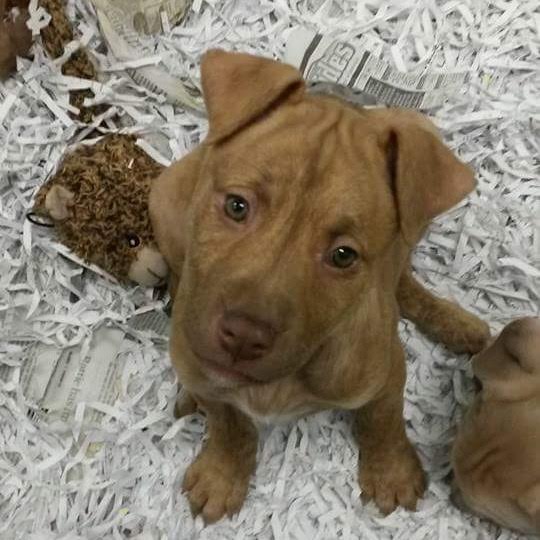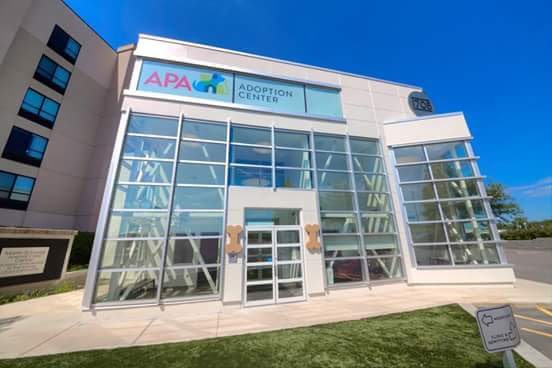Rusty as his name suggests has red fur. An energetic addition to the APA Adoption Center in Brentwood, Missouri near Saint Louis looks much different from his litter mates.
So does Rusty have a different father than the other pups? Is he part Chow? Since there are more than 200 known breeds, which can be combined in up to 55 trillion different ways, without genetic testing there is no way to make an educated guest. This is one reason the APA Adoption Center is no longer identifying dogs as a specific breed or a mix of breeds if there is no valid evidence to suggest it.
“With regard to breed labels, we want adopters to focus on who the dog is instead of what they might be. Things like personality, energy level, age, and likes or dislikes result in a better fit than looks. Studies show dogs are labeled incorrectly 75% of the time. By no longer guessing breeds, but instead sharing what we know about the pet, we’re able to bring more people and pets together,” explains Kim Brown, APA Director of Operations/ Vice President.
Unless a dog comes to the APA Adoption Center with papers, there is no way to be sure of the breed of a dog. Another reason for doing away with breed labels is that character traits in dogs as in people, is a complex mix of genetic and environmental influences. Jumping to conclusions about dogs just as jumping to conclusions about people because of their ethnic backgrounds can have many negative consequences. It isn’t family history that makes an individual and the same is true for dogs.
“We are proud to be in the first in Missouri to remove breed labels and focus solely on the attributes that create a well-matched pet adoption.” says APA President and Executive Director Sarah Javier.
“Our vision is for every adoptable pet to have a safe, loving home and we believe this helps bring us one step closer to making this a reality.”“Breed does not show on the APA kennel card. Our best guess of the breed is still entered into our database,” says Amber Webb, APA Volunteer Manager.
The APA staff has many resources to help adopters in getting to know the dog rather than guessing at the heritage. Conversations about a pet’s behavior and care requirements are the primary way the APA helps to find the perfect pet match without bringing breed into the discussion.




